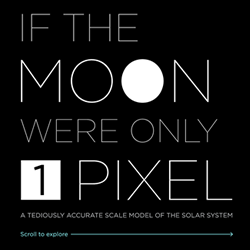Mars is the fourth planet from the Sun. Although several uncrewed spacecraft have explored this small planet, a human mission to Mars is likely in the next decade.
Read the recently published nonfiction book for youth then learn more at the website.
PACKING FOR MARS FOR KIDS by Mary Roach answers questions about space travel and life in space. This young readers adaptation contains all the humor and information found in the adult version while focusing on topics of interest to middle grade readers. From floating in space to toilet training, Roach shares both personal experiences and historical examples as she immerses readers in the practical aspects of a mission to Mars and beyond.
The MARS EXPLORATION PROGRAM website from NASA Science shares information and discoveries gathered from robotic orbiters, landers and mobile laboratories. Visitors can explore past, present, and future missions.
To visit the website, go to https://mars.nasa.gov/.
The HUMAN RESEARCH PROGRAM website from NASA explores the methods and technologies to support safe, productive human space travel. It includes links to useful resources about upcoming missions.
To visit the website, go to https://www.nasa.gov/hrp.
ARC courtesy of Norton Young Readers, an imprint of W. W. Norton.



